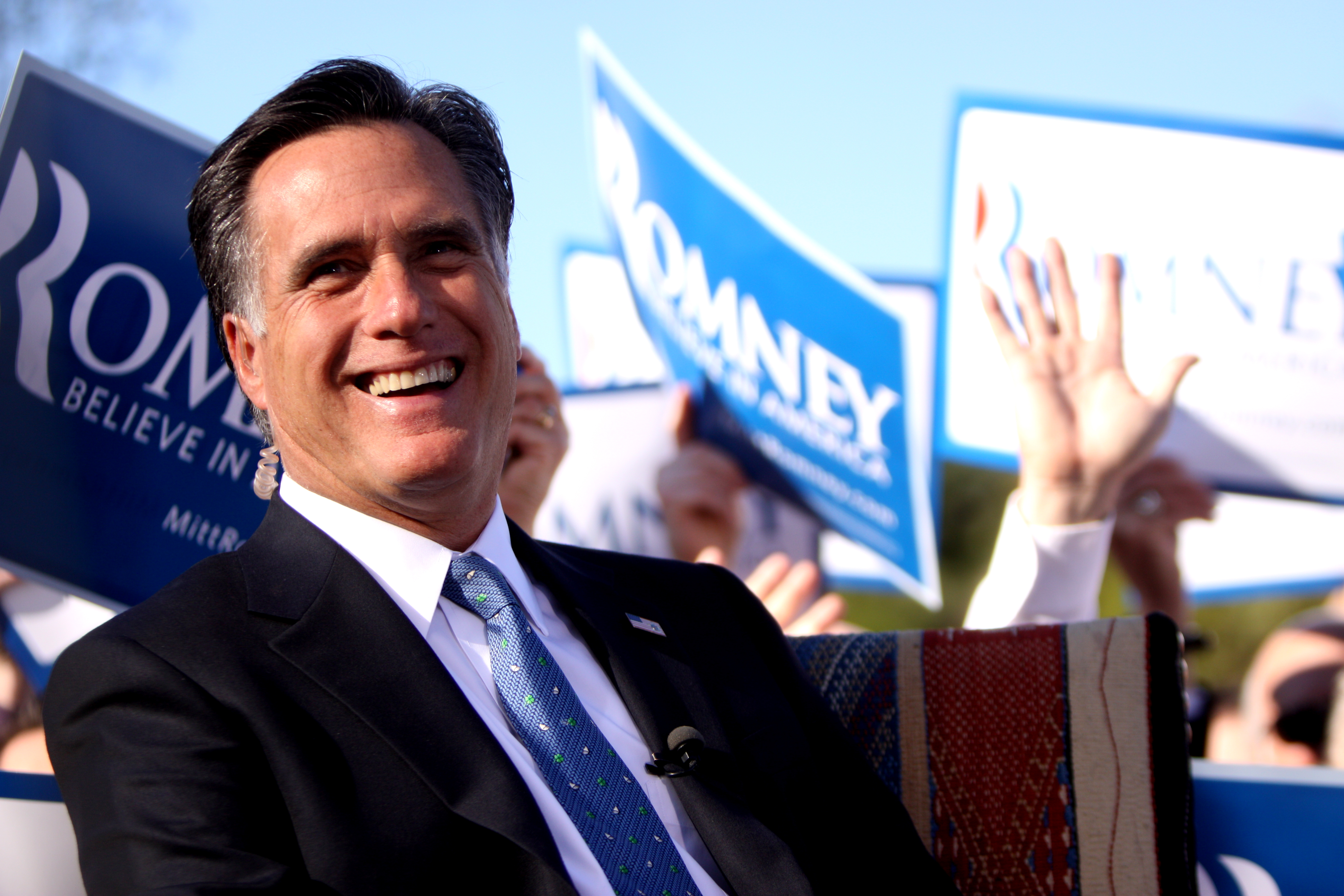By: Max Wallace
When Mitt Romney took the stage at Denver for the first presidential debate, he surprised many Americans. Expecting something akin to a robot, they
were instead shown a man who cares deeply for the plight of his fellow citizens. Even more, they saw a man with a record of leadership and a unique vision for restoring America to prosperity. Mr. Romney has experienced tremendous success throughout his career, both in the public and private sector, and if elected there’s every reason to think that same success will be replicated in Washington. In an era of uncertainty, Mitt Romney seeks to provide America with a firm sense of direction. He has promised to deliver stable economic growth, energy independence and a well-defined, uncompromising foreign policy.
Examining Mitt Romney’s track record reveals one thing, above all else. Success. He graduated from Brigham Young University with highest honors, obtaining a degree in English. He then went to Harvard where he enrolled in their joint JD/MBA program, graduating in the top third of his law school class and the top five percent of his business school class. Shortly after graduating, he joined the Massachusetts based consulting firm Bain & Company, becoming a vice-president in the firm a year later. He then went on to start his own private equity firm, Bain Capital, which was instrumental in the launch or acquisition of several large companies, Staples and Domino’s Pizza among them. He then returned to Bain & Co in 1990 to serve as interim CEO at the request of the founder, William Bain. Within a year, he had led the company from the edge of bankruptcy back to profitability. The rate he charged for his services? One dollar.
Upon leaving Bain Capital, Mr. Romney then assumed the role of President and CEO for the 2002 Winter Olympics in Salt Lake City. Contending with allegations of bribery against former officials, a revenue shortfall of more than $300 million, and grave security concerns for the first Olympics since the terrorist attacks of September 11th, 2001, the outlook for the Games was dim. Nevertheless, Romney was able to restore the image of the Games and leave the Olympics with a $100 million surplus, donating the entirety of his $1.4 million dollar salary to charity.
Arguably Mitt Romney’s greatest accomplishments were as Governor of Massachusetts. When he was elected in 2002, he faced a $1.5 billion deficit with a Democratic majority in both houses of the state legislature. By enacting extensive spending cuts and closing tax loopholes, he had produced a $600 million surplus by the time he left office in 2007. His signature achievement was a health-care reform bill that mandated that all residents much purchase health insurance, a plan that President Obama later used as a model for his national health-care plan.
In review, Mr. Romney’s accomplishments over the length of his career include: successfully building a business from the ground up, transforming massive deficits into surpluses, reforming tax policy and designing a landmark health-care policy. What then, are some of the issues that America faces today? An unemployment rate that just dropped below 8% for the first time in four years. A budget deficit of staggering proportions. An outdated and inefficient tax code. A costly and complicated health-care system. Mitt Romney has solved all of these problems before, and he has a plan that would enable him to do so again.
Perhaps the greatest issue facing American’s today is an unstable economy. Despite the Federal Reserve’s best efforts and hundreds of billions of dollars, the economy remains stagnant and consistent growth remains elusive. Who better to address this issue than a man with firsthand knowledge of how businesses function? Instead of spending money that we don’t have in an effort to produce growth, Mr. Romney wants to release the free-enterprise system from undue restrictions in order to spur development and ensure that government is aiding businesses, not hampering them. He wants to preserve the current Bush-era tax rates while eliminating taxes on capital gains, dividends and interest for any taxpayer with an income under $200,000 a year. This promotes investment in the economy and allows lower income families to devote more of their income towards saving for retirement. He also wants to lower the corporate tax rate to 25% from its current rate of 35%. This is one area in which America has allowed itself to become wildly uncompetitive. The US corporate tax rate is the highest in the world, with the U.K. maintaining a rate of 26% and Canada a rate of 16.5% as both nations looking to make further cuts. Simultaneously, by closing tax loopholes, the federal government can lower tax rates without losing vital revenue. The key to job growth is to encourage companies to expand their operations and engage in more business. The key to business expansion is lowering tax rates down to an internationally competitive rate. This, coupled with eliminating burdensome regulatory policies that are costly to enforce, will place corporations in an environment where they can confidently begin to hire new workers.
By lowering our corporate tax rates, Mr. Romney aims to make America a globally competitive market. To that end, he will also pursue sanctions against China if they persist in floating their currency. By manipulating their monetary policy, the Chinese government ensures that Chinese goods remain artificially cheap. By punishing China for manipulating their currency and shifting the U.S. to a territorial tax system, where corporations pay only the tax rate in their host country, America will once again become globally competitive in key areas such as manufacturing.
To address the deficit, Mr. Romney seeks to implement the same policy that he used to such great success as Governor of Massachusetts: reigning in spending. He wants to cut all unnecessary spending, capping federal spending at the historical norm of 20% of GDP. He wants to return the administration of some federal programs to the states, with the belief that it can be administrated much more efficiently and for a fraction of the cost. In particular, the Obama health-care plan will be repealed. In its place, each state will be empowered to pursue individual, hand tailored solutions like what Romney enacted as Governor of Massachusetts. Tort reform will also be pursued, lowering healthcare costs overall. Mr. Romney has shown himself capable of eliminating deficits time and again, and by enacting sustainable spending cuts, the federal deficit can be eliminated as well.
Beyond our economy, Mr. Romney also has a plan to revitalize our energy policy and strengthen our national defense. By lowering restrictions on domestic energy production whilst still supporting federal subsidies of alternative energy, America can look towards achieving energy independence. By making ourselves resistant to the pressures of foreign energy producers, we ensure a more stable domestic economy. By expanding our military budget, our nation can ensure that we will maintain our fighting strength and our ability to protect America’s interests and allies abroad. War still remains an option only once all other recourses have been exhausted, but it is unacceptable to allow our nation’s military to falter at a time when China’s military is rapidly expanding.
The recession may be over, but the economy is far from healthy. In Mitt Romney, America can find a leader with the vision and the experience necessary to restore efficiency and confidence in our government. For the last four years, we’ve tried to produce jobs, economic growth and energy independence while trying in vain to reign in our spending. We just can’t do it, but Mitt Romney has done it before. We need to let him do it again.

